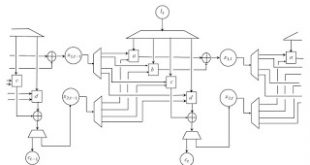1.0 Introduction This post is on current events. The plane crashes of the Boeing 737 Max 8 airplane is arguably about more than a software bug. I point out in this post that you can read about how the United States' Federal Aviation Administration (FAA) is supposed to certify software and electronic hardware in airplanes yourself. In some sense, this post is not about software bugs, but rather about software engineering certification processes that fit into a larger systems engineering...
Read More »Elsewhere
Arindrajit Dube writes an obituary for Alan Krueger, in Slate. Maria Cristina Marcuzzo, at INET, highlights Krishna Bharadwaj's contributions to economics. Longtime commentator Emil Bakkum's web page, collecting a variety of resources, is here. An advocate of Modern Monetary Theory, Brian Romanchuk is apparently writing a book about models supposedly of Dynamic Stochastic General Equilibrium. Some recent posts include: Questions about time scales in DSGE models. Anticipations have a time...
Read More »Arguing Against “Libertarianism”
1.0 Introduction By "libertarianism", I mean propertarianism, a right-wing doctrine. In this post, I want to outline some ways of arguing against this set of ideas. (On this topic, Mike Huben has much more extensive resources than I can allude to.) 2.0 On Individual Details I like to use certain policy ideas as a springboard for arguments that they have no coherent justification in economic theory. Unsurprisingly, the outdated nonsense market fundamentalists push does not have empirical...
Read More »Should Liberals Want A Coalition With Conservatives Or Labor?
This is current events, and but post is about current events in Britain in 1920. Lenin comments on reports of a dispute between Lloyd George and H. H. Asquith, both leaders of the Liberal party: [In] the speech delivered by Prime Minister Lloyd George on March 18, 1920... Lloyd George entered into a polemic with Asquith (who had been especially invited to this meeting but declined to attend) and with those Liberals who want, not a coalition with the Conservatives, but closer relations...
Read More »Scholars on Neoliberalism
The literature on neoliberalism is large. Here are some scholarly books on this subject or on related matters: The power of market fundamentalism: Karl Polanyi's critique, by Fred Block & Margaret R. Somers (2016). Undoing the demos: Neoliberalism's stealth revolution, by Wendy Brown (2015). The great persuasion: Reinventing free markets since the Depression, by Angus Burgin (2015). The strange non-death of neoliberalism, by Colin Crouch (2013). The birth of biopolitics: lectures at...
Read More »“The Microeconomic Foundations of Aggregate Production Functions”
Figure 1: A Production Network I here comment on Baqaee and Farhi (2018). I am still trying to absorb it. I suppose that it is nice that an economist at Harvard is revisiting the Cambridge Capital Controversy (CCC). (Where is Michael Mandler these days?) My major criticism is they do not do what their title claims. That is, their supposed microeconomic foundations are still up in the air. In many CCC examples, technology is specified in terms of fixed-coefficient production processes....
Read More »Some Contradictions Of Capitalism
I tend to be doubtful, albeit sometimes amused, by comments drawing on Hegel. But I thought I would adopt some of that sort of language for a post. Capitalism constantly revolutionizes production, leading to a fantastic increase in productivity. An ever more diverse set of commodities is produced, including for consumption. Machines for making, controlling, and communicating with other machines, are constantly being introduced, reducing the labor time needed to produce any commodity....
Read More »Catalog Of Neoclassical Responses To The Cambridge Capital Controversy
This is merely a list and, as usual, off the top of my head. Paul A. Samuelson (1966). A summing up. Quarterly Journal of Economics 80: 568-583. Mark Blaug (1975). The Cambridge revolution: Success of failure? A critical analysis of Cambridge theories of value and distribution. Institute of Economic Affairs. Joseph E. Stiglitz (1974). The Cambridge-Cambridge controversy on the theory of capital: A view from New Haven. Christopher J. Bliss (1975). Capital Theory and the Distribution of...
Read More »Women In Economics
Here is a list of female economists I have learned from or would like to know more about: Jane Marcet Harriet Martineau Charlotte Perkins Gilman Rosa Luxemburg Edith Penrose Joan Robinson Krishna Bharadwaj Anne Mayhew Phyliss Deane Victoria Chick Ingrid Rima Nancy Folbre Obviously, this list reflects my interests and biases. This list is off the top of my head.
Read More »Donald J. Harris
Don Harris is a Stanford economist. Apparently, this post is on current events. His daughter, Kamala Harris is the junior senator from California and has announced that she is running for President of the United States. I gather Don and his wife divorced when Kamala was quite young, and that his ex-wife raised her. I do not know much about Harris' personal history. I did not even know that he was Jamaican. Did he give Michael Manley any advice? (This is a great movie.) It is his more...
Read More » Robert Vienneau: Thoughts Economics
Robert Vienneau: Thoughts Economics

